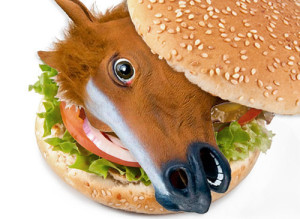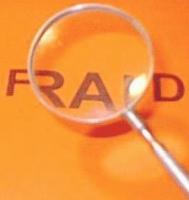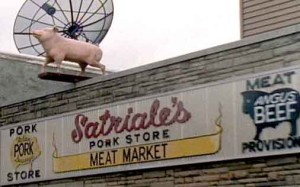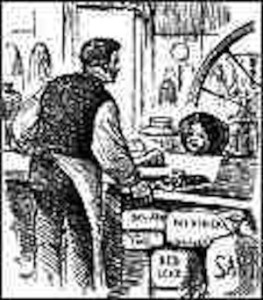
Deli meat dates matter: Subway investigating date coding fraud in China



The Food and Drug Administration (FDA) yesterday said that local health agencies are investigating the 117 restaurants and traditional market vendors that have allegedly purchased and used lamb mixed with pork.
 FDA interim Director-General Chiang Yu-mei (姜郁美) said the Greater Kaohsiung District Prosecutors’ Office has provided a list of 117 stores to health authorities nationwide and that the agencies are verifying the quantity of the adulterated lamb they procured.
FDA interim Director-General Chiang Yu-mei (姜郁美) said the Greater Kaohsiung District Prosecutors’ Office has provided a list of 117 stores to health authorities nationwide and that the agencies are verifying the quantity of the adulterated lamb they procured.
“The adulterated lamb is mostly frozen meat and must be removed from store shelves. Businesspeople who produce or sell adulterated or counterfeited foods are subject to a maximum fine of NT$50 million (US$1.67 million) and a prison term of up to five years,” Chiang said.
Chiang made the remarks one day after the Greater Kaohsiung Government’s Department of Health released the results of its random test on sliced lamb products in the city, with the test showing that two of the four lamb samples tested were found to contain traces of pork.
The department then referred the two meat vendors that sold the problematic lamb products — one in the city’s Fongshan District (鳳山) and the other in Zuoying District (左營) — to prosecutors for further investigation.
According to prosecutors’ preliminary investigation, the two meat vendors purchased the adulterated lamb from Kaohsiung’s Ching Lung Meat Co (金龍肉品) and New Taipei City’s Hua Yuan International Co (華元國際) respectively.
While Ching Lung simply mixed lamb with pork, Hua Yuan was found to have manufactured three different grades of lamb, categorized as Grade A, Grade B and Grade C, prosecutors said.
“Food crime” has reached unprecedented levels, a new report to be published on Thursday is expected to say.
 Commissioned by the UK environment agency and health department, the report is understood to recommend the creation of a “food crime unit”.
Commissioned by the UK environment agency and health department, the report is understood to recommend the creation of a “food crime unit”.
It draws on evidence from international police bodies Interpol and Europol.
They say that international gangs are diversifying – shifting from drug trafficking and armed robbery to illegal and fraudulent food trading.
The review of Britain’s food supply chains was announced in response to the horsemeat fraud in 2013.
Michael Ellis, assistant director of Interpol, told BBC News: “This has changed the scope of investigations. Criminals have realized that they can make the same amount of money by dealing with counterfeit food. Invariably the sentences are much lighter.
“In my experience, the patterns used by criminals involved in counterfeiting are very similar to those used in the dealing of drugs. They operate front companies, they employ front bank accounts, they will have false declarations for the movement of their goods, they will mis-declare their shipments.”
The official report into the causes of the horsemeat scandal has been shelved until at least the autumn, prompting criticism that the government is not doing enough on food safety.
 The inquiry by Chris Elliott, professor of food safety at Queen’s University Belfast, was announced by the Department for Environment, Food and Rural Affairs 16 months ago and was to have been completed by the spring. It is expected to highlight the impact of spending cuts on frontline enforcement and inspection in the food industry.
The inquiry by Chris Elliott, professor of food safety at Queen’s University Belfast, was announced by the Department for Environment, Food and Rural Affairs 16 months ago and was to have been completed by the spring. It is expected to highlight the impact of spending cuts on frontline enforcement and inspection in the food industry.
But sources have told the Guardian that its publication has been blocked amid government concerns that the public would be frightened by the idea that criminals were still able to interfere with their food.
Elliott said in December that the food sector had become a “soft touch” for criminals who knew there was little risk of detection or serious penalty and that the response of the Food Standards Agency (FSA) was insufficiently robust. He has also called for a new police force to combat food crime, saying the risks were so great that a dedicated unit staffed by senior police detectives was needed.
Emphasizing the specific risks posed by the intentional and fraudulent adulteration of food ingredients for economic gain, the United States Pharmacopeial Convention (USP) has submitted a public comment letter to the U.S. Food and Drug Administration (FDA) urging the FDA to reconsider its strategy to address Economically-Motivated Adulteration (EMA) of food ingredients.
 “Economically-motivated adulteration of food ingredients is a significant concern, with its own challenges, posing a threat to public safety, eroding consumer confidence in the integrity of food and disrupting markets by placing control of the supply chain in the hands of criminals,” said Ronald Piervincenzi, Ph.D., chief executive officer at USP. “EMA should be addressed as its own unique category of food adulteration.”
“Economically-motivated adulteration of food ingredients is a significant concern, with its own challenges, posing a threat to public safety, eroding consumer confidence in the integrity of food and disrupting markets by placing control of the supply chain in the hands of criminals,” said Ronald Piervincenzi, Ph.D., chief executive officer at USP. “EMA should be addressed as its own unique category of food adulteration.”
USP recommends that FDA considers a framework tailored to the specific nature of EMA. While USP agrees that it is not ideal to handle EMA under a typical food-defense/vulnerability approach, the organization says EMA would be equally misplaced under preventive controls. The suggested approach would include a vulnerability assessment mostly focused on determining the likelihood of EMA occurring, but also including a component of public health risk assessment; a second component would be a vulnerability control plan to mitigate these risks.
As Europe wakes up to food fraud in the form of horsemeat, French folks learned today that meat from horses used in laboratory procedures was sold as fit for human consumption and landed on French dinner table.
Officers from France’s National Gendarmerie, accompanied by food safety and veterinary investigators, carried out raids in 11 regions in  southern France before dawn, arresting 21 people, according to a statement.
southern France before dawn, arresting 21 people, according to a statement.
An official, speaking on condition of anonymity because details had not yet been released, said the animals had been used in laboratories — including that of drugmaker Sanofi-Pasteur — and then, instead of being destroyed, ended up in the food chain.
Previously, Chris Elliott, professor of food safety and director of the Institute for Global Food Security at Queen’s University Belfast, issued a report on the horsemeat scandal of earlier this year, and concluded it wasn’t just food fraud, but serious food crime in the mainstream industry.
According to the Guardian, while the report is careful not to join all the dots, and Elliott himself stresses that the scale of hidden illegal activity in our food supply is almost by definition impossible to calculate, it leaves little doubt that the UK has a very serious problem.
Some of the most devastating information comes in a series of panels and oblique references to what he believes is really happening.
We are told of the case of a cold store where the authorities uncovered evidence of extensive criminal planning. The store’s primary business  was to re-label animal byproducts classed as eligible only for pet food as fit for human consumption, using forged veterinary health marks.
was to re-label animal byproducts classed as eligible only for pet food as fit for human consumption, using forged veterinary health marks.
The people involved even advertised to the industry that they could re-label out-of-date meat as part of a “government-approved service”.
But there was, and remains no, capacity “for the major criminal investigation the evidence, and the criminal profits, justified”, Elliott reports.
Sorenne’s taken to making “That’s what she said” jokes.
Must be her environment.
French-based megalomart Carrefour is, according to China Daily, involved in yet another food safety scandal and this time it’s over their  juicy beef ball which apparently doesn’t contain meat.
juicy beef ball which apparently doesn’t contain meat.
According to the national food production requirement, the juicy beef ball can be mixed with a certain amount of pork and lamb to boost its taste. However, as for the beef balls sold at the retailer’s Lishuiqiao store in Beijing, the beef remains to be seen.
Carrefour said on Thursday it removed its beef ball products form shelves of all stores in Beijing, as an immediate reaction to resolve the scandal, while related products and suppliers will be investigated.
The beef ball safety problems are only limited to the Beijing area as other Carrefour stores in East China do not carry such products, according to a report of CBN Daily on Friday.
Irony is lost on some folks.
This is the lemon from my lemon tree.
The one lemon.
The tree will yield more in the future, but since I alone use a lemon and a  couple of limes every day, it would be a long winter without farmers.
couple of limes every day, it would be a long winter without farmers.
A consideration when the usual response to claims of food fraud is to go back to the land in concrete jungles.
A still would be more practical.
The N.Y. Times reports that hidden deep in the lush English countryside, Moscow Farm is an unlikely base for an international organized crime gang churning out a dangerous brew of fake vodka.
But a quarter of a mile off a one-lane road here, tens of thousands of liters of counterfeit spirits were distilled, pumped into genuine vodka bottles, with near-perfect counterfeit labels and duty stamps, and sold in corner shops across Britain. The fake Glen’s vodka looked real. But analysis revealed that it was spiked with bleach to lighten its color, and contained high levels of methanol, which in large doses can cause blindness.
The Europe-wide scandal surrounding the substitution of cheaper horse meat in what had been labeled beef products caught the most attention from consumers, regulators and investigators this year. But in terms of food fraud, regulators and investigators say, that is just a hint of what has been happening as the economic crisis persists.
Investigators have uncovered thousands of frauds, raising fresh questions about regulatory oversight as criminals offer bargain-hunting shoppers cheap versions of everyday products, including counterfeit chocolate and adulterated olive oil, Jacob’s Creek wine and even Bollinger Champagne. As the horse meat scandal showed, even legitimate companies can be overtaken by the murky world of food fraud.
“Around the world, food fraud is an epidemic — in every single country where food is produced or grown, food fraud is occurring,” said Mitchell Weinberg, president and chief executive of Inscatech, a company that advises on food security. “Just about every single ingredient that has even a moderate economic value is potentially vulnerable to fraud.”
Whenever there is tampering, there are potential risks to health. Indian restaurants in Britain have been prosecuted for adding ground peanuts to  almond powder, which poses a risk to allergy sufferers. Food experts say that engine oil is among the substances found in olive oil.
almond powder, which poses a risk to allergy sufferers. Food experts say that engine oil is among the substances found in olive oil.
In a weeklong food fraud crackdown last year, the French authorities seized 100 tons of fish, seafood and frogs legs whose origin was incorrectly labeled; 1.2 tons of fake truffle shavings; 500 kilograms, or 1,100 pounds, of inedible pastries; false Parmesan cheese from America and Egypt; and liquor from a Dutch company marketed as tequila. They also found fraudulent Web sites claiming to sell caviar.
Illegally fished and contaminated shellfish often finds its way to fish markets. And even the fish that is safe to eat may not be what consumers think it is; the owner of a fish and chip shop in Plymouth, England, was fined last year for selling a cheaper Asian river fish called panga as cod.
Another fraud is to fake the packaging of well-known brands with writing in a foreign language so consumers believe they have a genuine product that was diverted abroad at a bargain price.
Even religious communities are not immune. In Britain, the Food Standards Agency has warned against drinking Zam Zam water, which is sacred to Muslims and comes from Saudi Arabia. Bottles sold in Britain “may contain high levels of arsenic or nitrates,” the agency said.
Shanghai authorities are testing mislabeled mutton from a wholesaler that supplies a chain of hot pot restaurants run by US fast food firm Yum Brands, the latest safety scare to taint China’s food industry.
TVNZ reports that acting on a tip, Shanghai food safety inspectors and police raided a wholesale market and found packages labeled “New Zealand mutton”  at one supplier that had no production date or list of ingredients, according to a report on the website of the municipal food safety committee.
at one supplier that had no production date or list of ingredients, according to a report on the website of the municipal food safety committee.
Invoices indicated that some of the meat had already been sold to several restaurants, including outlets of Yum-owned Little Sheep, the website said. The meat was being tested and results would be available in about a week, the report added.
The mislabeled meat crackdown follows media reports last week that police had busted a crime ring that had passed off more than $1 million in rat and small mammal meat as mutton.
Excerpts below from an op-ed in in the Irish Times by Prof Alan Reilly, chief executive of Food Safety Authority of Ireland.
Over three months have elapsed since the Food Safety Authority of Ireland (FSAI) uncovered the practice of replacing processed beef with horse meat. Initial inquires put the spotlight on three processing plants,  two in Ireland and one in the UK. Soon, it became evident the problem was not confined to these islands, as most countries in Europe became involved.
two in Ireland and one in the UK. Soon, it became evident the problem was not confined to these islands, as most countries in Europe became involved.
It is disturbing that in Europe where, in the wake of food scares, the food control systems have undergone extensive review and renewal, a scandal of large proportions went unnoticed and undetected.
The scale of the scandal is astounding. Numerous foods, beef burgers, beef meals, pies, meat balls, kebabs and remarkably, even chicken nuggets were removed from sale. One recall alone in the Netherlands involved 50,000 tonnes of meat – over 500 million burgers. Leading international food brands and retailers were caught in a web of deception perpetuated in Europe for at least a year, possibly longer.
Some businesses have ceased, others lost market share, and consumer confidence eroded. Brands and reputations carefully nurtured over years will take a long time to recover their association with quality and trust. Apart from reputational damage, the scandal resulted in the regrettable waste of considerable quantities of food.
What is clear is the risk to public health from this incident is low, as most evidence to date suggests the horse meat used came from approved abattoirs. All products in Ireland that tested positive for horse DNA, tested negative for the anti-inflammatory drug phenylbutazone, or “bute”.
Nevertheless, the practice of replacing processed beef with horse meat and failing to inform consumers is unacceptable. The primary motive is profit.
Already changes are coming. Global standards for the trade in beef trim will become more stringent. It will no longer be the industry norm to purchase frozen beef blocks on face value. Laboratory testing for  species authenticity will be commonplace. DNA testing of meat products will be standard for major retailers. Verification of the authenticity of meat species will underpin product labelling.
species authenticity will be commonplace. DNA testing of meat products will be standard for major retailers. Verification of the authenticity of meat species will underpin product labelling.
As ever with food incidents, an important lesson is how risk communication minimises damage to reputations and brands. There were interesting contrasts in how food companies responded to the crisis, from denial to full acceptance of responsibilities.
Our experience is that the more a food company is open and transparent , the less likely it will be accused of cover up or lack of due care. The horse meat scandal demonstrated again how proactive risk communication and acceptance of responsibility increases public trust and minimises reputational damage.